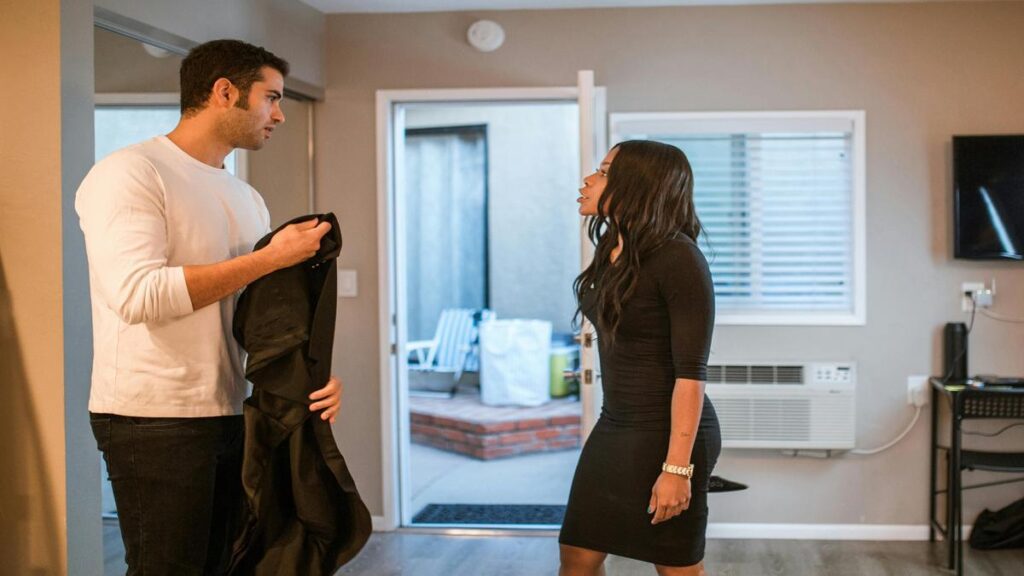Common relationship challenges faced by couples and how to overcome them
Facing common relationship challenges can feel tough, but you’re not alone! In this article, you will discover how to improve communication, understand each other’s needs, and tackle conflicts head-on. You’ll also find tips on rebuilding trust and intimacy, along with ways to strengthen your emotional bond. Get ready to dive in and learn effective strategies that will help you and your partner create a happier, healthier relationship!
Understanding Relationship Communication Issues
The Importance of Open Dialogue
Open dialogue is like the glue that holds your relationship together. When you communicate openly, you build trust and understanding. It’s important for both you and your partner to feel heard. Think of it as a dance; both partners need to be in sync. Honest conversations can tackle problems before they grow. For more on enhancing your communication skills, check out effective communication techniques.
Signs You Might Have Communication Problems
Sometimes, it’s hard to see the signs that communication isn’t flowing smoothly. Here are some red flags to watch for:
- Frequent Arguments: Fighting over small things may indicate deeper issues.
- Silent Treatment: Ignoring each other creates distance and resentment.
- Misunderstandings: Feeling often misunderstood suggests a need to reassess communication.
- Avoiding Difficult Topics: Steering clear of tough conversations allows problems to fester.
Tips for Better Communication in Your Relationship
Improving communication can feel daunting, but it’s totally doable! Here are some handy tips to help you out:
| Tip | Description |
|---|---|
| Listen Actively | Pay attention to what your partner is saying without interrupting. |
| Use I Statements | Express your feelings without blaming. For example, say I feel upset instead of You make me upset. |
| Be Honest and Clear | Share your thoughts openly, but kindly. Clarity can prevent misunderstandings. |
| Set Aside Time to Talk | Create a safe space for discussions without distractions. |
By focusing on these tips, you can strengthen your connection and tackle common relationship challenges faced by couples and how to overcome them.
Couples Conflict Resolution Strategies
Common Causes of Conflicts in Relationships
Conflicts in relationships can feel like stormy weather. Understanding the common causes can help you navigate through the rough patches. Here are some usual suspects:
- Communication Issues: Misunderstandings can lead to arguments.
- Different Values: Differing beliefs or priorities can create tension.
- Financial Stress: Money matters can be a significant source of conflict.
- Time Management: Balancing work, family, and personal time can cause friction.
- Intimacy Issues: A lack of connection can lead to feelings of loneliness and frustration.
Effective Techniques for Resolving Disputes
When conflicts arise, it’s crucial to have some effective techniques in your back pocket. Here’s how you can tackle disputes head-on:
- Listen Actively: Sometimes, all your partner needs is to be heard.
- Stay Calm: Keeping your cool can prevent escalation.
- Use I Statements: This can reduce defensiveness.
- Find Common Ground: Look for areas of agreement to build a bridge.
- Take a Break: If things get too heated, step away momentarily.
How to Create a Conflict Resolution Plan
Having a conflict resolution plan can be like having a map in uncharted territory. Here’s how to create one:
| Step | Action |
|---|---|
| Identify Triggers | List what usually causes arguments. |
| Set Guidelines | Agree on communication methods during conflicts. |
| Plan for Breaks | Decide when to take a timeout if needed. |
| Establish Check-Ins | Regularly discuss relationship improvement. |
By following these steps, you can tackle conflicts more effectively and keep your relationship strong.
Intimacy Problems in Relationships
Recognizing Signs of Intimacy Issues
Recognizing the signs of intimacy issues can be the first step to improvement. Here are some common indicators:
- Lack of Physical Touch: Few hugs, kisses, or cuddles may signal a problem.
- Emotional Distance: Shallow conversations may indicate a need for deeper connection.
- Avoidance of Conflict: Avoiding tough conversations can harm intimacy.
- Decreased Interest in Sex: A drop in sexual desire can signal underlying intimacy issues.
Recognizing these signs early can help you address the common relationship challenges faced by couples and how to overcome them.
Ways to Rebuild Intimacy with Your Partner
Rebuilding intimacy requires effort, but it’s worth it. Here are some effective strategies:
- Open Communication: Share feelings, fears, and desires to create a safe space.
- Quality Time: Spend distraction-free time together.
- Physical Affection: Increase physical touch, like holding hands or cuddling.
- Set Goals Together: Work toward a common goal to strengthen your bond.
Activities to Strengthen Your Emotional Bond
Engaging in activities together can help rekindle that spark. Here are some ideas:
| Activity | Description |
|---|---|
| Game Night | Play board games or video games together. |
| Cooking Together | Try new recipes and enjoy a meal you made. |
| Nature Walks | Explore the outdoors together. |
| Volunteer | Give back to the community as a team. |
These activities can help you reconnect and build a stronger emotional bond with your partner.
Trust Rebuilding Strategies for Couples
Why Trust is Essential in Relationships
Trust is the foundation of any relationship. Without it, things can get rocky. When you trust your partner, you feel safe and loved. You can share your thoughts and feelings without fear. But when trust is broken, it can feel like a storm has hit your relationship. To learn more about building trust over time, consider exploring best practices for building trust.
Steps to Rebuild Trust After a Breach
Rebuilding trust takes time and effort, but it can be done. Here are some steps to take:
- Open Communication: Discuss what happened and share feelings.
- Acknowledge the Hurt: Recognize how the breach affected both of you.
- Set Clear Boundaries: Discuss what is acceptable moving forward.
- Be Patient: Understand that healing takes time.
- Take Responsibility: Own up to your actions if you broke the trust.
- Seek Professional Help: Consider therapy for additional support.
| Step | Description |
|---|---|
| Open Communication | Share feelings and listen to each other. |
| Acknowledge the Hurt | Recognize the impact of the breach on both partners. |
| Set Clear Boundaries | Define what is acceptable to rebuild trust. |
| Be Patient | Understand that healing takes time. |
| Take Responsibility | Own up to your actions if you broke the trust. |
| Seek Professional Help | Consider therapy for additional support. |
The Role of Forgiveness in Trust Restoration
Forgiveness is key to restoring trust. It’s not about forgetting what happened but about letting go of the pain. When you forgive, you free yourself from the weight of anger and resentment. This doesn’t mean you have to rush into forgiving. Take your time and feel what you need to feel.
Remember, forgiveness is a choice. It can be hard, but it’s often necessary for moving forward. By forgiving, you open the door to rebuilding your relationship stronger than before.
Managing Expectations in Relationships
Understanding Each Other’s Needs
Understanding each other’s needs is key in any relationship. Think of it like a dance; both partners need to be in sync. You may express love differently or have varying things that make you feel valued. Take time to talk about what you both want and need. For insights on emotional intelligence in relationships, consider reading signs of emotional intelligence.
Here are some important points to consider:
- Listen Actively: Pay attention to what your partner says; it shows you care.
- Ask Questions: Don’t hesitate to ask what they need from you.
- Share Your Needs: Let them know what you need too; it’s a two-way street!
How to Set Realistic Relationship Goals
Setting realistic goals in your relationship can help you both grow together. Think of these goals as a roadmap guiding you toward a happy future. Here are some tips:
- Be Specific: Instead of saying, I want to be happier, say, I want to go on a date night once a month.
- Keep It Simple: Focus on a few goals that matter most.
- Check In Regularly: Discuss your goals to stay on track and allow for adjustments.
Here’s a simple table to help you visualize setting goals:
| Goal | Specific Action | Timeline |
|---|---|---|
| Date Night | Go out once a month | Monthly |
| Communication | Talk for 30 minutes each day | Daily |
| Quality Time | Spend one weekend a month | Monthly |
Communicating Your Expectations Clearly
Clear communication is vital in any relationship. If you don’t express your expectations, your partner may not know what you want. Here are some tips:
- Be Honest: Share your feelings openly to build trust.
- Use I Statements: This helps express feelings without blaming.
- Stay Calm: Approach conversations with a calm mindset for constructive dialogue.
When you communicate your expectations clearly, it helps avoid misunderstandings. It’s like putting all your cards on the table.
Overcoming Jealousy and Financial Disagreements
How Jealousy Can Affect Your Relationship
Jealousy can sneak into your relationship and create doubt, insecurity, and even resentment. It can cloud your judgment and make you question your partner’s love and loyalty, leading to arguments and pushing you further apart.
Strategies for Managing Financial Conflicts
Money matters can be a hot topic in any relationship. It’s common for couples to face financial disagreements, but there are ways to tackle these challenges head-on. Here are some strategies:
- Open Communication: Talk about your finances openly; share worries and goals.
- Set Goals Together: Discuss shared financial goals to bring you closer.
- Educate Each Other: If one of you is better at budgeting, share that knowledge.
Creating a Joint Budget to Avoid Disagreements
One effective way to avoid financial conflicts is by creating a joint budget. This helps you see where your money is going and keeps both of you on the same page. Here’s a simple table to help you get started:
| Category | Your Contribution | Partner’s Contribution | Total |
|---|---|---|---|
| Income | $2,000 | $1,500 | $3,500 |
| Rent | $1,000 | $1,000 | $2,000 |
| Groceries | $300 | $200 | $500 |
| Savings | $500 | $300 | $800 |
| Total Expenses | $1,800 | $1,500 | $3,300 |
Creating this budget together can help you both understand where your money is going and encourage teamwork and responsibility.
Conclusion
In conclusion, navigating the choppy waters of relationships can feel daunting, but remember, you’re not alone in this journey! By focusing on open communication, trust, and intimacy, you can tackle the common relationship challenges faced by couples and how to overcome them. Don’t shy away from hard conversations; they’re stepping stones to a stronger bond.
Embrace the power of teamwork—a relationship is a partnership where both of you should feel valued and heard. With patience and effort, you can turn those bumpy roads into a smooth ride. So, take a deep breath, put your best foot forward, and remember that every little step counts.
If you’re eager to learn more about enhancing your relationship, head over to 4ulove.com for more insightful articles. Happy reading!


Pingback: Strategies for fostering open dialogue in relationships for better understanding